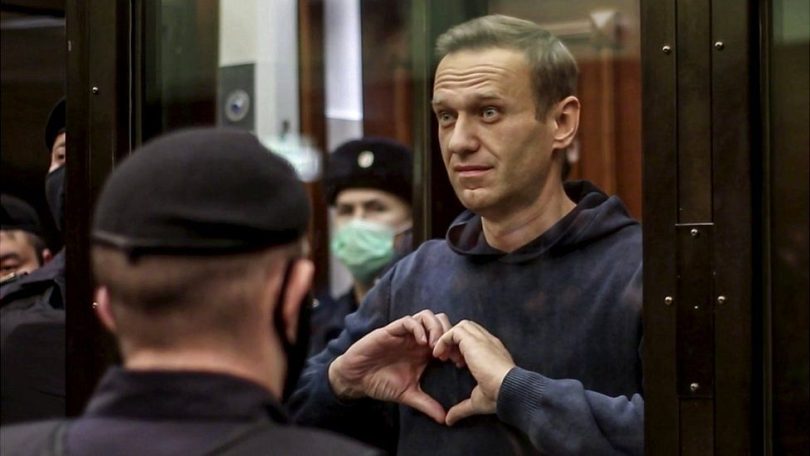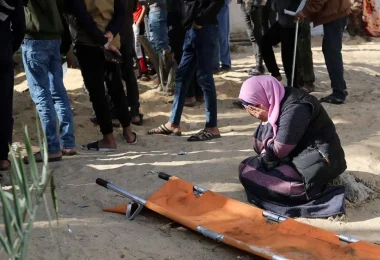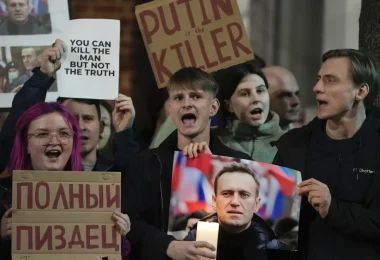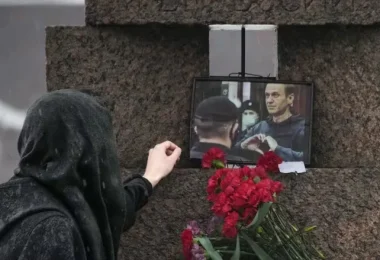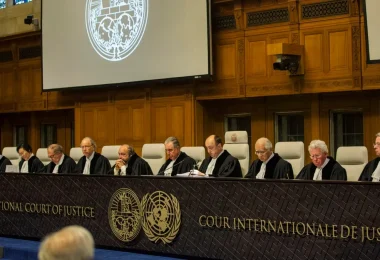Alexei Navalny, Russia’s most outspoken critic of the Kremlin, has died in a remote Arctic prison known as the “Polar Wolf” colony, where he was serving a lengthy sentence. Navalny, a 47-year-old former lawyer, had risen to prominence over a decade ago through his exposure of corruption and luxury among Russia’s elite, branding them “crooks and thieves.”
The Federal Penitentiary Service of the Yamalo-Nenets Autonomous District announced that Navalny felt unwell after a walk in the prison’s harsh conditions and lost consciousness almost immediately. Despite attempts at resuscitation, Navalny was declared dead, with the cause of death yet to be determined. The prison, located in Kharp, approximately 1,900 km northeast of Moscow, is known for its severe winters, with temperatures dropping significantly below freezing.
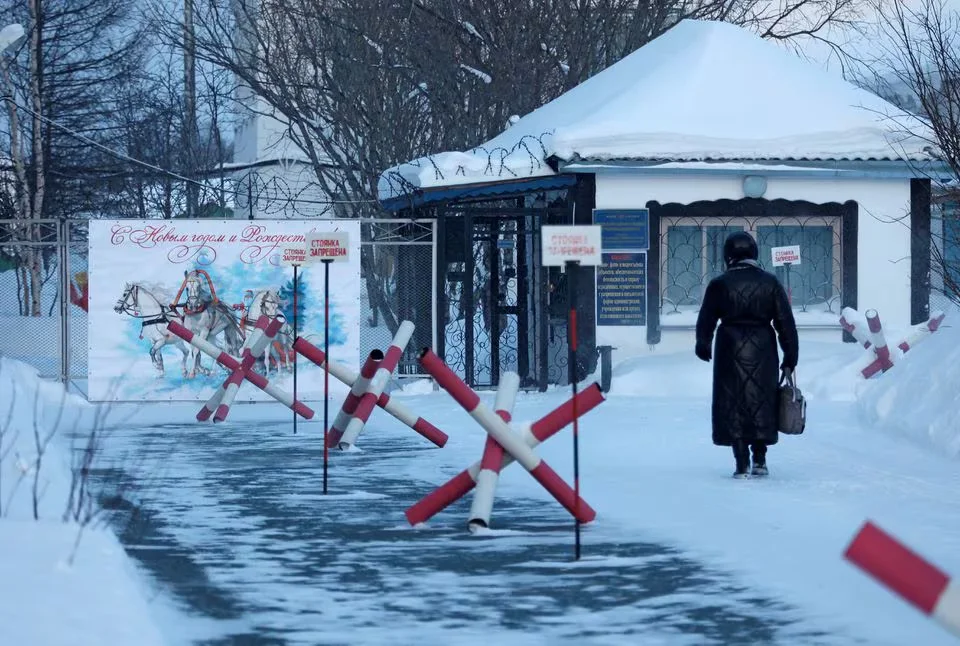
A woman walks towards the entrance of the IK-3 penal colony, where Russian opposition politician Alexei Navalny serves his jail term, in the settlement of Kharp in the Yamal-Nenets Region, Russia December 29, 2023.
Navalny’s death has sparked a wave of outrage from the West, with many pointing fingers at Russian President Vladimir Putin. Navalny’s allies are skeptical about the prison’s account, with some believing that Navalny’s death was not accidental but rather a targeted killing. Leonid Volkov, an aide to Navalny, accused the Russian authorities of effectively admitting to Navalny’s murder through their announcement.
Western officials have paid tribute to Navalny’s bravery in confronting the Russian regime, with France’s Foreign Minister Stephane Sejourne highlighting Navalny’s fight against oppression. Navalny’s legal team was en route to the Arctic prison as news of his death broke, amid widespread mourning and condemnation from international figures.

Russian opposition leader Alexei Navalny appears on a screen via a video link from the IK-3 penal colony in Kharp in the Yamal-Nenets region during a hearing against the Ministry of Justice in Supreme Court, in Moscow, Russia, January 11, 2024.
Navalny had been a beacon of hope for Russia’s opposition, with many seeing him as a potential future leader who could bring about political change in the country. His return to Russia in 2021, following recovery from a suspected poisoning attempt, was seen as a testament to his commitment to his cause, despite the risks involved.
Navalny’s death raises serious questions about the conditions of political prisoners in Russia and the lengths to which the regime will go to silence its critics. His demise in the penal colony, under circumstances that remain to be fully explained, serves as a stark reminder of the challenges faced by those who dare to stand up against corruption and autocracy in Russia.

